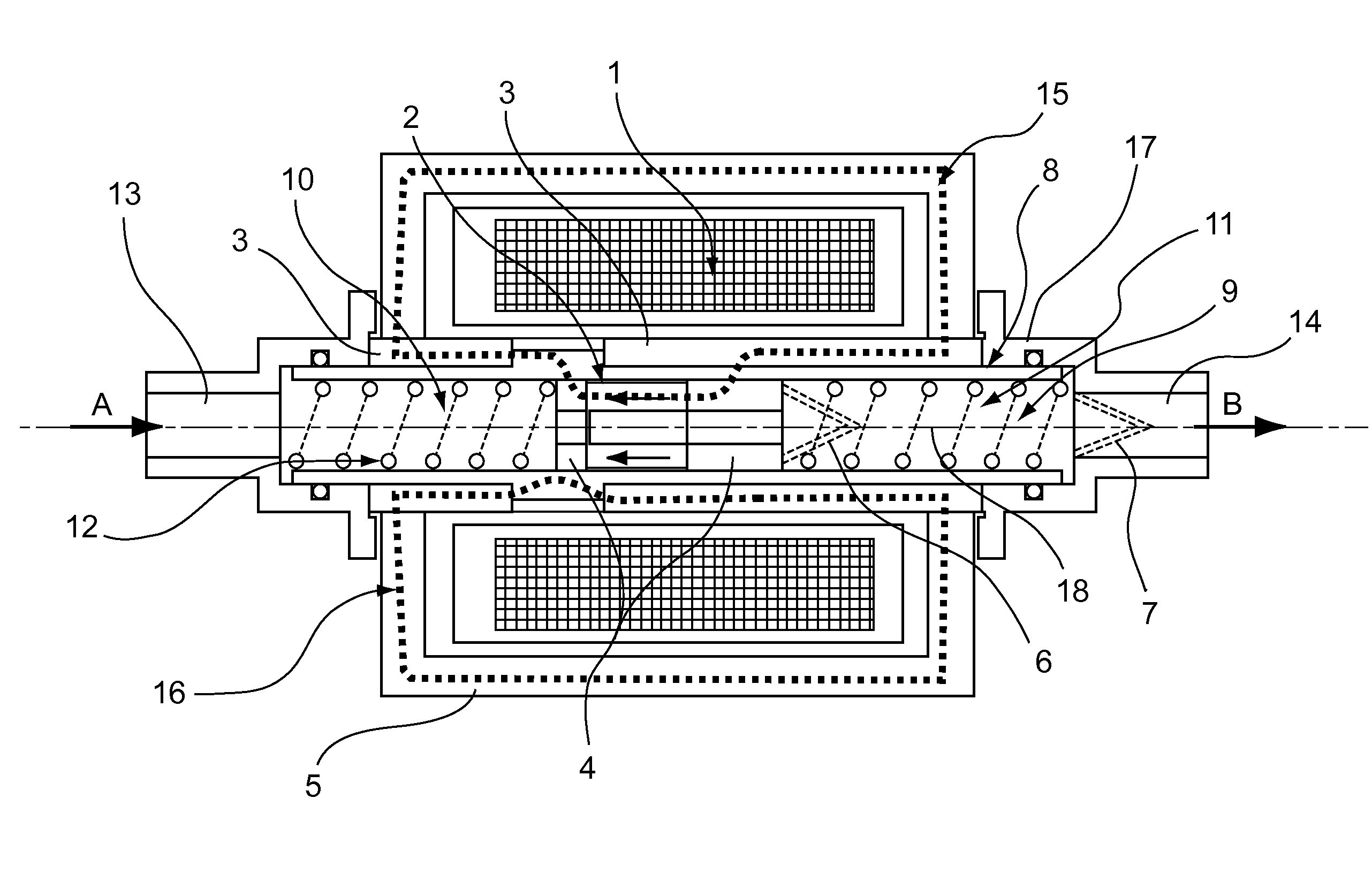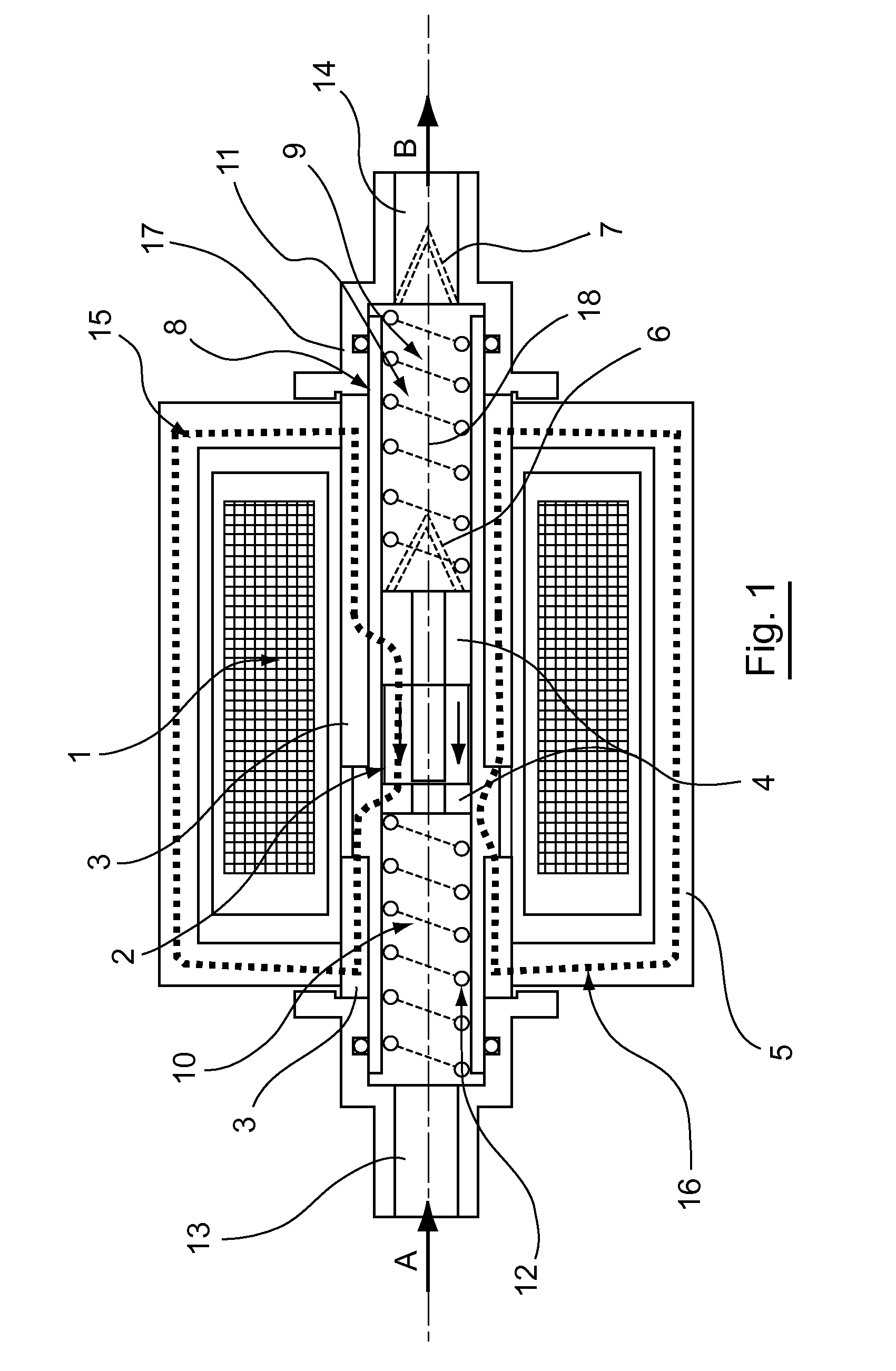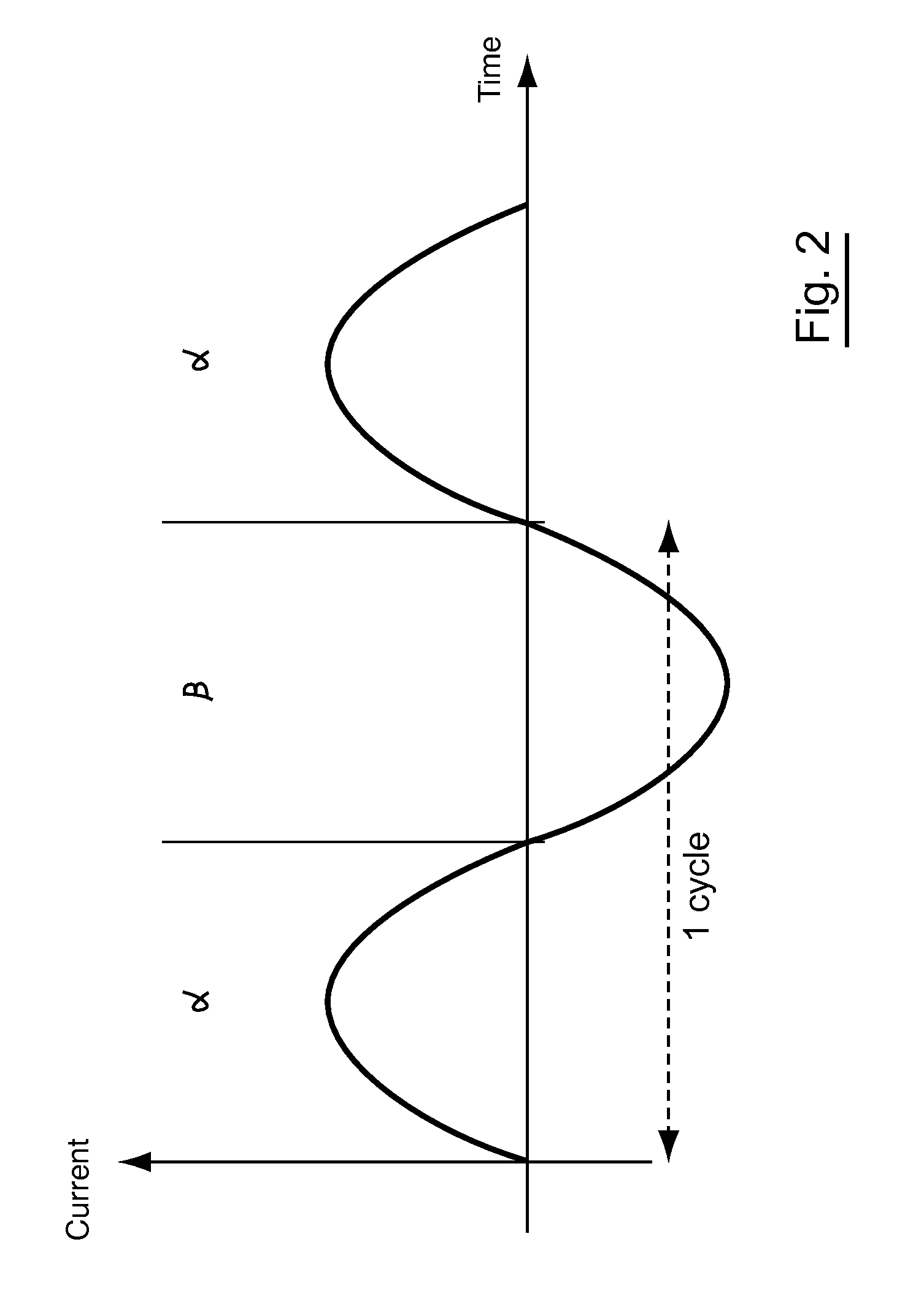Electromagnetic pump with oscillating piston
a technology of oscillating pistons and electric pumps, which is applied in the direction of electrical apparatus, positive displacement liquid engines, dynamo-electric machines, etc., can solve the problems of increasing the volume of the discharge chamber, the inlet valve of the discharge chamber cannot be opened, and the pressure in the discharge chamber is increased, so as to improve the guidance of field lines, improve the resulting electromagnetic force, and reduce the tolerance of the outside diameter of the piston
- Summary
- Abstract
- Description
- Claims
- Application Information
AI Technical Summary
Benefits of technology
Problems solved by technology
Method used
Image
Examples
Embodiment Construction
In the figures, the scales and proportions are not strictly complied with, for purposes of illustration and clarity.
Throughout the detailed description that follows with reference to figures, the terms “upstream” and “downstream” are used with reference to the direction of flow of the fluid in the pump, when the latter is in operation. In FIGS. 1 and 3, the fluid enters the pump through the end 13 in the direction of the arrow A and leaves the pump through the end 14 in the direction of the arrow B. Thus the end 13 is an upstream end and the end 14 is a downstream end.
A pump according to an illustrative aspect of the disclosure comprises a hollow tubular body 8 extending along a longitudinal direction 18. This hollow tubular body 8 may be of any type. Preferably this body 8 is cylindrical with a circular base, with an axis of symmetry coinciding with the longitudinal direction 18.
The body 8 has on either side: a fluid entry 13 in the hollow tubular body 8, a fluid outlet 14 in the h...
PUM
 Login to View More
Login to View More Abstract
Description
Claims
Application Information
 Login to View More
Login to View More - R&D
- Intellectual Property
- Life Sciences
- Materials
- Tech Scout
- Unparalleled Data Quality
- Higher Quality Content
- 60% Fewer Hallucinations
Browse by: Latest US Patents, China's latest patents, Technical Efficacy Thesaurus, Application Domain, Technology Topic, Popular Technical Reports.
© 2025 PatSnap. All rights reserved.Legal|Privacy policy|Modern Slavery Act Transparency Statement|Sitemap|About US| Contact US: help@patsnap.com



